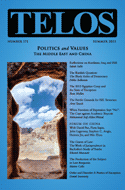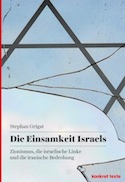By Arno Tausch · Monday, April 4, 2016 In his account of the impact of Islam on Europe, Michael Ley pulls no punches, especially for all those readers, like the present reviewer, who still hope that a Muslim humanism and not Islamist terrorism will become the primary social movement in global Islam in the years to come. In a nutshell, Ley’s main theses are the following: Orthodox and radical Islam are the scourge of humanity. Ley calls Sharia Islam “the worst danger for democracy and human rights in the 21st Century.” Only an Islam without Sharia is compatible with human rights. Yet that is a vision for the future; current reality, according to Ley, is different. The Islamization of Europe is, according to Ley, the most visible change in most European societies. While liberal and educated citizens consider the increasing influence of conservative and radical Islam with great concern and regard the future of the continent as rather bleak, their so-called progressive opponents interpret the ongoing Islamization as a cultural enrichment that contributes to the historical overcoming of the obsolete nation-state. Ley goes as far as to say that today the pioneers of radical post-national Europe would prefer to abolish all symbols of national identity: indigenous Europeans should waive all national, cultural, religious, and ultimately also traditional sexual identities.
Continue reading →
By Arno Tausch · Monday, August 24, 2015
 This article presents statistical estimates of ISIL support in the Muslim world, based on Pew data covering 42 percent of the total global Muslim population on favorability of four terror organizations, to be well compared with ISIL: Hamas, Hezbollah, the Taliban, and al Qaeda, and the favorability of suicide bombing. It is assumed that these data (average support rates) reflect the true, but unknown, rates of ISIL support, which will be at somewhere around 17 percent of the entire global Muslim population. The article analyzes mechanisms that contribute towards ISIL favorability, such as anti-Americanism, the hatred of the State of Israel, and the advance of violent Islamism. Finally a comparison of the evolving terror scene with the conflict in Northern Ireland is also outlined. This article presents statistical estimates of ISIL support in the Muslim world, based on Pew data covering 42 percent of the total global Muslim population on favorability of four terror organizations, to be well compared with ISIL: Hamas, Hezbollah, the Taliban, and al Qaeda, and the favorability of suicide bombing. It is assumed that these data (average support rates) reflect the true, but unknown, rates of ISIL support, which will be at somewhere around 17 percent of the entire global Muslim population. The article analyzes mechanisms that contribute towards ISIL favorability, such as anti-Americanism, the hatred of the State of Israel, and the advance of violent Islamism. Finally a comparison of the evolving terror scene with the conflict in Northern Ireland is also outlined.
Continue reading →
By Arno Tausch · Tuesday, May 19, 2015  Die Einsamkeit Israels: Zionismus, die israelische Linke und die iranische Bedrohung (Israel’s Solitude: Zionism, the Israeli Left, and the Iranian Threat), by the German political scientist Stephan Grigat, is an important contribution to the overall debate on the Middle East, and it was published just in time, given the background of the Lausanne negotiations with Iran. Grigat dispels the current euphoria about the “breakthrough in Lausanne” and illuminates the many existing darker sides of the Lausanne deal. The present reviewer is of the opinion that, particularly in view of the special historical responsibility of Continental Europe, a careful reconsideration of the realities created in Lausanne and the considerable role played by the EU foreign policy machinery is necessary and that the other side in the conflict—the side of Israel—is also being heard. Die Einsamkeit Israels: Zionismus, die israelische Linke und die iranische Bedrohung (Israel’s Solitude: Zionism, the Israeli Left, and the Iranian Threat), by the German political scientist Stephan Grigat, is an important contribution to the overall debate on the Middle East, and it was published just in time, given the background of the Lausanne negotiations with Iran. Grigat dispels the current euphoria about the “breakthrough in Lausanne” and illuminates the many existing darker sides of the Lausanne deal. The present reviewer is of the opinion that, particularly in view of the special historical responsibility of Continental Europe, a careful reconsideration of the realities created in Lausanne and the considerable role played by the EU foreign policy machinery is necessary and that the other side in the conflict—the side of Israel—is also being heard.
Continue reading →
|
|
 This article presents statistical estimates of ISIL support in the Muslim world, based on Pew data covering 42 percent of the total global Muslim population on favorability of four terror organizations, to be well compared with ISIL: Hamas, Hezbollah, the Taliban, and al Qaeda, and the favorability of suicide bombing. It is assumed that these data (average support rates) reflect the true, but unknown, rates of ISIL support, which will be at somewhere around 17 percent of the entire global Muslim population. The article analyzes mechanisms that contribute towards ISIL favorability, such as anti-Americanism, the hatred of the State of Israel, and the advance of violent Islamism. Finally a comparison of the evolving terror scene with the conflict in Northern Ireland is also outlined.
This article presents statistical estimates of ISIL support in the Muslim world, based on Pew data covering 42 percent of the total global Muslim population on favorability of four terror organizations, to be well compared with ISIL: Hamas, Hezbollah, the Taliban, and al Qaeda, and the favorability of suicide bombing. It is assumed that these data (average support rates) reflect the true, but unknown, rates of ISIL support, which will be at somewhere around 17 percent of the entire global Muslim population. The article analyzes mechanisms that contribute towards ISIL favorability, such as anti-Americanism, the hatred of the State of Israel, and the advance of violent Islamism. Finally a comparison of the evolving terror scene with the conflict in Northern Ireland is also outlined.  Die Einsamkeit Israels: Zionismus, die israelische Linke und die iranische Bedrohung (Israel’s Solitude: Zionism, the Israeli Left, and the Iranian Threat), by the German political scientist Stephan Grigat, is an important contribution to the overall debate on the Middle East, and it was published just in time, given the background of the Lausanne negotiations with Iran. Grigat dispels the current euphoria about the “breakthrough in Lausanne” and illuminates the many existing darker sides of the Lausanne deal. The present reviewer is of the opinion that, particularly in view of the special historical responsibility of Continental Europe, a careful reconsideration of the realities created in Lausanne and the considerable role played by the EU foreign policy machinery is necessary and that the other side in the conflict—the side of Israel—is also being heard.
Die Einsamkeit Israels: Zionismus, die israelische Linke und die iranische Bedrohung (Israel’s Solitude: Zionism, the Israeli Left, and the Iranian Threat), by the German political scientist Stephan Grigat, is an important contribution to the overall debate on the Middle East, and it was published just in time, given the background of the Lausanne negotiations with Iran. Grigat dispels the current euphoria about the “breakthrough in Lausanne” and illuminates the many existing darker sides of the Lausanne deal. The present reviewer is of the opinion that, particularly in view of the special historical responsibility of Continental Europe, a careful reconsideration of the realities created in Lausanne and the considerable role played by the EU foreign policy machinery is necessary and that the other side in the conflict—the side of Israel—is also being heard. 






